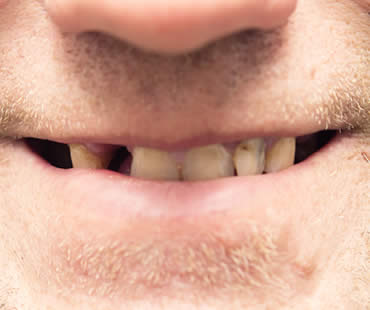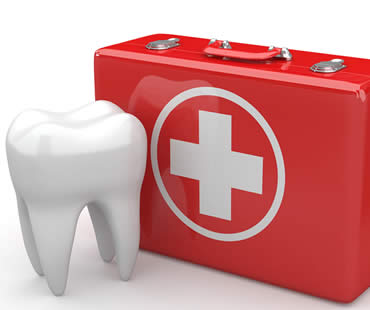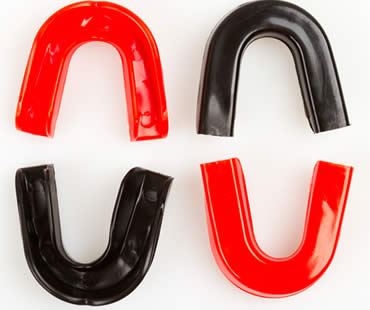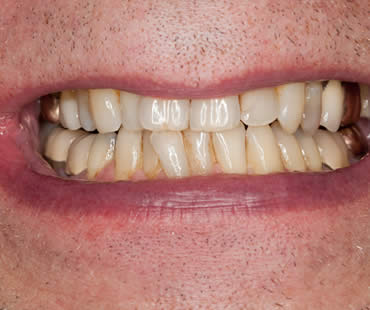
Feb 4, 2022 | Dental Topics 2, Cosmetic Dentistry, Blog
Cosmetic dentistry offers many types of procedures, from porcelain veneers to teeth whitening or bleaching. Whether you are doing something more involved, like a restorative dental bridge and crown treatment, or something more straightforward, such as veneers, you should know what lies in store for you as you pursue your smile goals.
You should begin by talking to your cosmetic dentist. This is the time for you to be honest with your dentist about any changes you’d like to see in your smile. Don’t be embarrassed to discuss your true feelings; your cosmetic dentist is here to help you achieve your dream smile. If you are healthy overall, virtually nothing can stand in the way of you and your ideal look if you are in the hands of a skilled cosmetic dentist.
If you are getting your teeth whitened or are receiving veneers, you will need to clean your teeth beforehand. Removing the plaque and bacteria from the surface of the tooth is extremely important toward achieving even whitening results. Veneers that trap bacteria beneath them are perfect environments for infection. Having a thorough cleaning ensures that your veneers will be properly bonded to the tooth surface and you can enjoy your new look with confidence.
Many cosmetic dentistry therapies are achieved through some kind of oral surgery. In order to have the best possible experience, follow all of the instructions given to you by your surgeon. Make arrangements for someone to take you home following surgery, as you will not be able to drive safely. Have your medications ready and begin taking them as soon as recommended. Eat only foods recommended by your surgeon as your mouth heals.
Braces also require a full check-up and thorough cleaning. After the braces are applied or following any adjustments, your mouth may be sore. Have ibuprofen on hand to help with the swelling and specialized orthodontic wax to protect your sensitive soft tissues.
Talk to your cosmetic dentist about your procedure to see what recommendations are best for you and your treatment.
We look forward to seeing you in our Conyers dental office

Sep 11, 2020 | Dental Information, Dental Topics 2, Blog
As we age, our birthdays tend to bring new oral health issues along with them. It’s a fact of life that our teeth and gums are impacted by our age. Here are some common problems to watch for, and suggestions for treatment.
Gum disease:
Regular dental checkups and cleanings are vital to avoid gum disease. The first stage is called gingivitis and it’s reversible. If untreated, it can lead to a very serious advanced stage called periodontitis. You may not experience signs of gum disease, so practicing good oral hygiene and seeing your dentist are the best ways to keep it at bay.
Tooth sensitivity:
If cold or hot foods cause you discomfort, you have a common problem called tooth sensitivity. It can result from decay, worn fillings, gum disease, broken teeth, or exposed roots. Your dentist may recommend toothpastes designed to reduce sensitivity, or other treatments based on the cause of your problem. Good oral hygiene can help with sensitivity also.
Missing teeth:
If you are missing any teeth, it not only looks unappealing but it can also affect your ability to eat and speak. Your other teeth may move, and bone loss can occur. Discuss treatment options with your dentist because you might be able to restore your smile. Bridges, implants, and dentures are a few of the dental advances that might help.
Dry mouth:
Medicines and some health conditions often cause your mouth to be overly dry. Having a dry mouth is uncomfortable, but it also can seriously impact your teeth and gums. Without saliva to naturally clean your mouth, the risks of tooth decay and other problems increase. Ask your dentist to look for signs of decay, and to help you identify the cause for your dry mouth. Be sure to tell your dentist about your medical history and medications.
Oral cancer:
Oral cancer can include your gums, lips, cheeks, tongue, jaw, throat, or soft palate. It sometimes begins with just a tiny spot or swollen area, so regular dental checkups can help catch this disease early. A variety of treatment options are available, but early detection makes a difference.
Schedule your appointment at our Conyers dental office

Jan 25, 2024 | Dental Information, Dental Topics 2, Blog
Pregnancy is an exciting time in your life that brings about many changes to your body. Your oral health is affected as well. There are specific things to keep in mind during pregnancy related to your teeth, gums, and caring for them. Let’s talk about the things you should be thinking about for your mouth while expecting a baby.
Medications:
Tell your dentist about any prescription or over-the-counter medicines you’re taking, so that it’ll be easier to prescribe any drugs needed for you during dental treatment. Your dentist may also want to consult your doctor to discuss safe painkiller or antibiotic options for you during pregnancy.
X-Rays:
If you have a dental emergency or a problem that needs diagnosis, an X-ray may be required. Radiation exposure from dental X-rays is very low, but your dentist will cover you with a leaded apron to protect your abdomen. A leaded thyroid collar will also be used to protect your thyroid from radiation.
Gingivitis:
It’s not uncommon for some women to develop pregnancy gingivitis, which is a gum problem that occurs during the hormonal fluctuations of pregnancy. This condition is an inflammation of the gums that causes tenderness, swelling, and usually some bleeding during dental hygiene tasks. Your dentist may suggest more frequent cleanings during pregnancy to prevent gingivitis, because left untreated it can advance to more serious gum disease.
Pregnancy tumors:
Some pregnant women experience overgrowths of tissue called pregnancy tumors, which appear on the gums mostly during the second trimester. They are not cancerous and are usually located between your teeth. Dentists believe they are related to having too much plaque. Pregnancy tumors bleed easily and appear red and raw. Usually they go away after the baby’s birth, but some women prefer to have them removed before then. Discuss options with your dentist to see what’s best for you.
We look forward to seeing you in our Conyers dental office

Aug 9, 2019 | Dental Information, Dental Topics 2, Blog
Problems with your mouth or teeth can occur suddenly. You might be injured playing a sport, eating, or even just while doing a seemingly harmless activity. You should know what types of dental problems are considered emergencies, and what to do while waiting to see your dentist. Quick action can make a big difference in saving a tooth, or limiting damage to your mouth or face.
What is considered an emergency?
Not every dental problem must be treated as an emergency, but some do require professional treatment as soon as possible. This includes a broken or knocked out tooth, lost crowns and fillings, severe toothache, infection, and injuries to the soft tissues of your mouth.
What should I do?
See your dentist as soon as possible to treat the problem and prevent further damage. Here are some steps to take if you experience any of the following common dental emergencies:
- Severe toothache – rinse your mouth with warm water and floss to remove trapped food.
- Swelling – apply a cold compress on the outside of the swollen area. Do not place any painkiller or aspirin against your gums, because it can burn your gum tissue.
- Chipped or broken tooth – if possible, save the piece that has broken off. Rinse both the piece and your mouth with warm water. If it is bleeding, hold gauze on the area. Apply a cold compress to relieve pain and reduce swelling.
- Lost filling – apply dental cement from your drugstore to fill the hollow area until you can see your dentist. Or, try placing a bit of sugarless gum into the area.
- Lost crown –try to replace the crown on your tooth and hold it in place temporarily with dental cement, denture adhesive, or toothpaste.
- Abscess – infections in your mouth can become abscessed, which is a serious condition. Rinse with warm salt water and see your dentist immediately.
- Soft tissue injuries – treat damage to your gums, cheeks, tongue and lips by rinsing with warm salty water. Hold gauze to the specific area to control bleeding, and hold a cold pack to the external area.
We treat patients from Conyers and the surrounding area

Oct 29, 2021 | Dental Information, Dental Topics 2, Blog
It’s back-to-school time and that means kids everywhere will be participating in sports. It’s time for football, soccer, volleyball, and all sorts of sports teams to get back in shape. That not only means conditioning your body, but also getting all the right gear. One item that you don’t want to forget is a mouth guard to protect yourself from mouth and facial injuries.
Dentists recommend mouth guards for participants in both high-impact sports and individual sports. Team sports often resulting in mouth injuries include football, basketball, baseball, softball, soccer, and hockey. Individual sports that carry high risks include cycling, gymnastics, skateboarding, martial arts, and rollerblading.
Mouth guards are worn to protect the mouth from a variety of possible injuries. They may be minor like a chipped or cracked tooth, or cuts from biting the inside of your mouth. Worse injuries can occur like jaw fractures, and athletes might experience tooth loss or nerve damage. Fractures can cause difficulty breathing, swallowing, eating, or speaking.
Dentists suggest that many sports injuries can be avoided by wearing a mouth guard, and they are available for athletes of all skill sets and ages. They are available in most sporting good stores, or you can opt to have customized mouth guards created by your dentist. Mouth guards are even available in a wide variety of colors, so athletes can choose them to coordinate with their school colors. They are also useful for people who wear traditional braces or Invisalign retainers.
Because many sports can be risky, there’s no reason to ignore the danger to your mouth. Wear a mouth guard to protect your smile throughout the season.
Schedule your appointment at our Conyers dental office

Nov 2, 2018 | Dental Information, Dental Topics 2, Blog
Plaque is your mouth’s enemy. It is a film of bacteria that forms on your teeth, and produces acid as it mixes with sugar from foods and drinks you consume. Over time, these acids destroy your tooth enamel and lead to decay. Plaque can also form under your gums and affect both the gum tissue and the bones supporting your teeth.
So how can you avoid getting the plaque that causes these problems? Here are some helpful tips.
Brush
Use a fluoride toothpaste to brush your teeth at least twice a day. Choose a soft-bristled toothbrush and brush all of your tooth surfaces, as well as your tongue.
Floss
As much as many people don’t want to, flossing your teeth every day is important in getting rid of plaque between your teeth and at your gum line.
Eat healthy foods
Some foods help keep plaque off your teeth. Munch on apples, cucumbers, carrots, and other raw vegetables and fruits. Crunchy foods like these will help clean your teeth while filling you up and giving you helpful nutrients.
Avoid junk food
On the other hand, limit the amount of junk food that you eat. Sugary drinks and foods introduce sugar into your mouth that will stick to your teeth and lead to plaque formation.
See your dentist
Even if you practice good oral hygiene, some amount of plaque usually forms. It hardens to become tartar, which can only be properly removed by your dentist. Dental checkups every six months will help you keep plaque under control, and a healthy smile on your face.
If you need a dentist in Conyers contact us today








